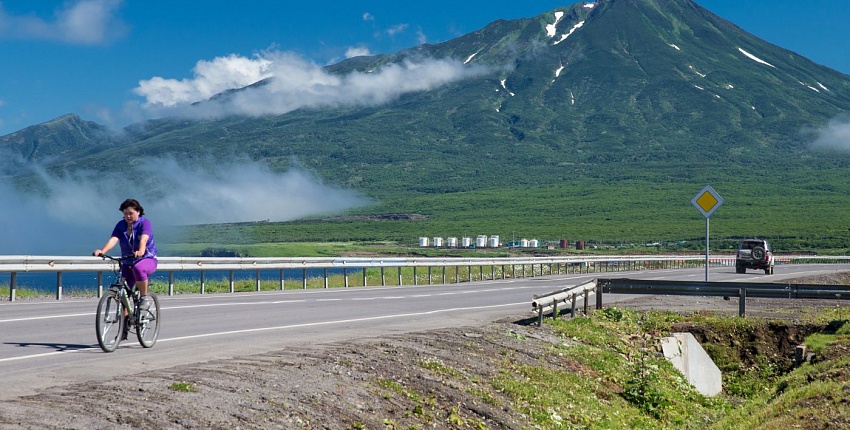Negotiations between Japan and Russia over four disputed islands have entered a new phase, according to diplomats close to the talks, as Shinzo Abe and Vladimir Putin prepare to meet at the G20 summit in Buenos Aires on Saturday.
The two sides appeared to move closer at a meeting this month in Singapore, and negotiators are now making a serious effort to explore the potential for a deal. Mr Abe is expected to visit Russia again in January.
But analysts warned that the chances of success were still low, with a gulf between public opinion in Russia and Japan as well as a series of onerous conditions that Moscow will impose if it truly is willing to return any islands in the Kuril chain.
“The Japan-Russia summit in Singapore has opened a new page in history,” said Muneo Suzuki, a Japanese former MP who has devoted his career to the dispute. “I believe this issue can only be solved by Shinzo Abe and Vladimir Putin. If it is not solved now there will never be a resolution.”
At the Singapore meeting in mid-November, the Japanese prime minister and Russian president agreed “to accelerate negotiations on a peace treaty based on the Soviet-Japanese joint declaration of 1956”.
That is significant because the 1956 declaration commits Russia to transferring two small islands — Habomai and Shikotan — but makes no mention of two much larger islands, known as Kunashir and Iturup to Russia, or Kunashiri and Etorofu to Japan.
Russia seized the four islands and expelled their Japanese residents at the end of the second world war. They now have a Russian population of thousands. The dispute means Moscow and Tokyo never signed a peace treaty to end the war.
Agreeing to talks based on the 1956 declaration marks a shift in Japan’s position that all four islands should be returned at once. “Mr Abe is taking a much softer approach than we’ve ever really seen before on this issue,” said James Brown, an expert on Japan-Russia relations at Temple University, Japan.
That approach has raised the possibility of a “two islands first” deal, whereby Russia returns Shikotan and Habomai while talks continue on the larger islands, or a “two plus alpha” settlement, whereby Russia returns the two small islands, while allowing joint economic activity and freedom of access on the larger islands.
According to a poll in the Nikkei newspaper, 46 per cent of Japanese favour an initial return of two islands versus 33 per cent who want all four islands returned together, although only 5 per cent were willing to settle for just two islands in total.
Mr Putin has long vowed never to give up any of Russia’s territory, and often appears visibly irked by questions regarding the possibility of handing over the islands to Japan. But the Singapore agreement suggested that Mr Abe’s relentless diplomacy — it was their 23rd summit — may be wearing the Russian leader down.
A peace treaty is necessary before talks on the future of the Kurils, Mr Putin has made clear, implying that Japan would have to acknowledge Moscow’s ownership of the islands before entering into negotiations over a potential transfer.
That would be tough for Tokyo to swallow, but Mr Brown said there would be at least three further conditions: exclusion of the returned islands from the US-Japan security treaty, making them off-limits to US bases; generous compensation for the Russian residents of Shikotan; and the lifting of Japanese sanctions on Russia imposed after Moscow’s invasion of Crimea in 2014.
There’s a question about whether Russia really wants to resolve this
Even then, the nature of an island return appears to be seen differently in Tokyo and Moscow. After meeting with Mr Abe in Singapore, Mr Putin explained to reporters that the Soviet declaration only specified a readiness to “cede control” over the southernmost two islands, and did not determine their future governance. The word he used in Russian translates as “transfer” rather than “return”.
The status quo suits Russia well, Mr Brown said, with Tokyo forced to court Moscow in order to satisfy domestic demand for progress on the islands. “It will just go on and on and eventually Mr Abe will run out of time,” he said. “There’s a question about whether Russia really wants to resolve this.”
Mr Abe has less than three years left in office and desperately wants to make a Russia deal his legacy. For Mr Putin, the talks can go on indefinitely. “We have been doing it for 70 years, and there seems to be no end in sight,” he said last month. “However, we are ready to keep working on this, certainly.”
Russia and Japan discuss Kuril Islands | World Notebook
Source: FT
Image Courtesy: Valdai Club
You may also like
-
Beware! Chinese Hackers are Using VLC Media Player to Spy on You
-
Israel Participates in US Mideast Naval Exercise wih Saudi Arabia and Oman – IMX 22
-
Pakistani Establishment Controlling ‘Family Business’ of Selling Kashmir Narrative, Uses Issue as Survival Strategy: Report
-
After Suspending Twitter ‘Indefinitely’, Nigerian Govt Joins Made-In-India Microblogging Platform ‘Koo’
-
Pam Gosal, First Indian-Origin Woman to be Scottish Lawmaker
